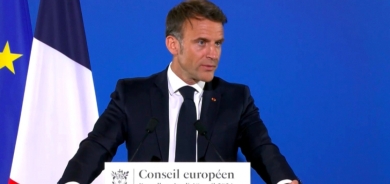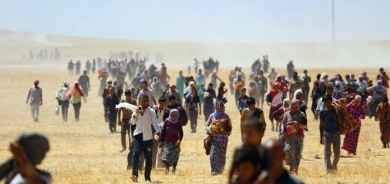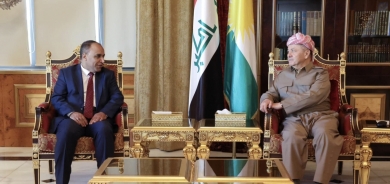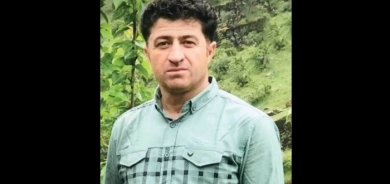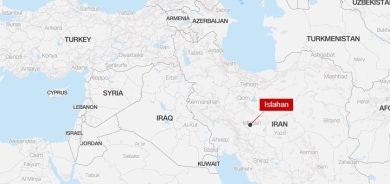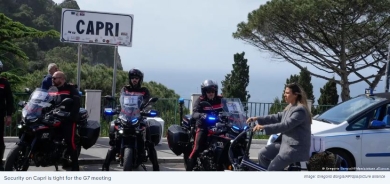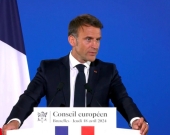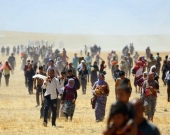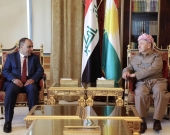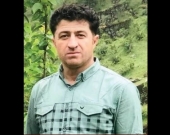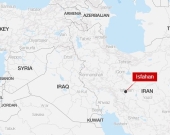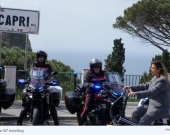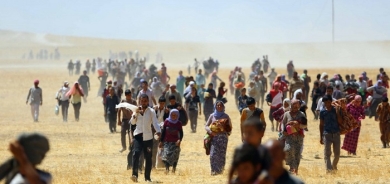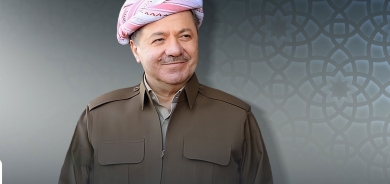Nechirvan Barzani: Iraqi identity needs to be unifying and inclusive
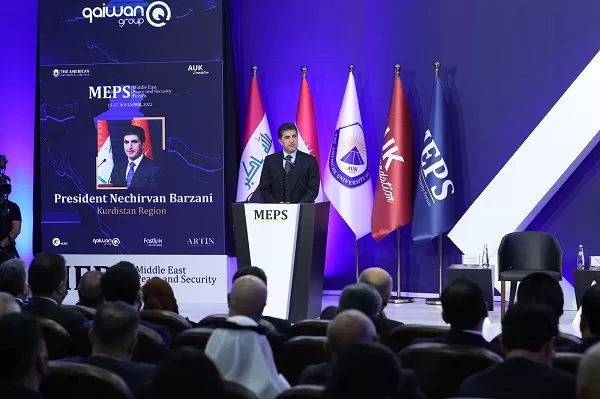
Kurdistan Region President Nechirvan Barzani took part in the Middle East Peace and Security Forum on Tuesday, which was arranged by the American University of Kurdistan in Dohuk.
At the forum, attended by Ms. Rewaz Fayeq, the Speaker of the Kurdistan Region Parliament, Mr. Masrour Barzani, the Prime Minister of the Kurdistan Region, officials from the Kurdistan Region and Iraq and a number of foreign dignitaries, the President delivered a speech which follows below:
Your Excellency the President of the Federal Iraq,
Dear Dr. Barham Salih,
Ladies and Gentlemen,
Good Morning and welcome all.
I’m delighted that a very important topic (Peace and Security in the Middle East) brings us together here this morning. I sincerely thank the American University of Kurdistan in Dohuk and the arrangers of this meeting for choosing this subject. I wish them success.
Moreover, today, November 16, is the International Day of Tolerance. On this occasion, I hope that we, together, consolidate the culture of tolerance, coexistence and mutual respect in the wider region and around the world through wisdom, collective work and cooperation. And I hope it helps stronger peace and stability to be realized for all of humanity.
Maintaining peace and preserving security and stability are uncompromisingly essential for this region, the Middle East, the world and for their future. In this sensitive and transitory period in the Middle East, maintaining peace and preserving security and stability are great challenges which represent a common responsibility for all countries, peoples and communities of this region.
How can we preserve peace and how can we all be winners?
Ladies and Gentlemen,
In its basic definition, peace means no wars and killings, no terror and violence. It means commonality and coexistence. But the definition of security extends far beyond the mere absence of wars. Security includes all aspects of life: economic security, food security, water security, energy security, social security and livelihood security. Many of these issues can become a common reason for understanding and collaboration among countries, for instance the issue of water and energy among Iraq, Iran, Turkey and Syria.
What I want to address here is security in its wider definition. Even in the absence of wars, there are still many issues that can become sources of threat and cause anxiety and fear for the public. For instance the corona virus, the COVID-19 pandemic and its ramifications in our time represent such a threat to public safety and security.
Any country that is saved from a war will pass through three stages:
First: Ending the war and preserving peace.
Second: Restoring trust in a way that all parties show good faith towards one another.
Third: Eliminating the causes of conflicts and not returning to the state of wars.
Iraq is now at the post-war state, trying to maintain security, which is why the initial step includes ending and eliminating the causes of instability while preserving peace.
We in Iraq are at the first stage, that is, we fought an unwanted war against the terrorist organization of ISIS. There is no ISIS Caliphate on the face of the earth anymore, but there is still a great responsibility on our shoulders as we have a long way ahead of us before we fully enforce security, especially eliminating all the factors that paved the way for the emergence of ISIS and its empowerment.
At this stage, with the support of our friends in the international community, we were able to defeat ISIS militarily. On a domestic level, with support from the Peshmarga and Iraq’s armed forces; on a regional level, with the support from neighboring countries, and on the global level, with the support from the international coalition, we triumphed. This triumph conveyed a message and demonstrated that maintaining security requires everyone’s support and collective work, and that enforcing peace benefits everyone.
There was another message:
If a main component of a country is not included in governance and administration, it can revolt and bring about chaos, which could threaten security for everyone on the domestic, regional and international levels.
Ladies and Gentlemen,
The security system, or the security and stability order in the Middle East is interconnected. As a reminder, let me provide an example:
There were a series of protests in Syria which were initially overlooked, but a few months later these demonstrations brought about instability in the country. Eventually the instability led to civil wars which directly had implications for Iraq.
The central and western parts of Iraq, which suffered from lack of services, paved the way for the ISIS to infiltrate into Iraq. ISIS took advantage of the discord between people and the government, and exploiting the public discontent, it invaded large parts of Iraq and posed a threat to all communities in the country. It further posed a threat to the neighboring nations, European nations and the entire international system.
At a closer look, we understand that instability in Syria had an impact on the security situation in Turkey; instability in Turkey and the suspension of the peace process in the country since, have had ramifications for the security situation in the Kurdistan Region and for peace in the wider region.
As we look at security in the Middle East, we clearly see two underlying aspects in Yemen, Lebanon, Syria, Sudan, Algeria, Tunisia and Libya:
First: The threats are not from the outside of the countries. The threats are not foreign.
Second: The threat to the security of any of these countries is not from another country, but from a community or a group inside of these countries.
When we study countries like Iran, Iraq, Syria and Turkey in connection with the Kurdish question, we realize that it is a domestic issue for all of these countries which should be resolved within their own borders.
Ladies and Gentlemen,
There should be no attempts to discriminate Kurds in these countries, rather Kurds should be integrated. Kurds should take part in decision makings, according to their fair share.
The Kurdish, Persian, Arab and Turkish nations have existed here prior to these states (which are only a century old), they have shared history and territories. These nations will undoubtedly remain neighbors. Therefore, there are no other alternatives other than mutual respect and coexistence.
Wars and killings and the logic of power will not last for ever, and at the end we must start negotiating through dialogue. Assimilation policies and denials cannot continue for ever, even if they are practiced with force, and at the end we must recognize one anther and remind ourselves that none of us intends to leave here and no one will ever vanish.
Therefore, coexistence within the same country (state) in the region, based on mutual interest, is our only solution. And now when the Persian, Turkish and Arab nations have their own states, it is their duty to help realize the rights of the Kurds and other components within their own states and promote their cultural, social and political rights.
Regarding the situation in Iraq, we have the election for the fifth term of the parliament behind us. This election was held six month ahead of its schedule. It was an early election which was forced by protesters in 2019 and 2020.
Here, we need to take a moment and look at Iraq before ISIS and after it and ask ourselves:
Have the factors and reasons behind the emergence of ISIS been addressed and eradicated?
The answer is very simple:
-No.
The early elections were demanded by the protesters in 2020. Their additional demands included enhancing the livelihood of people, improving public services, creating job opportunities, eliminating corruption, starting reforms and good governance through active participation.
Many of these questions must be answered. Now is the right time to seriously address people’s grievances, and that will guarantee security and preserve peace and stability.
In Iraq, security and stability will prevail when all communities genuinely share and take part in decision making. Peace is only preserved when the federal government addresses the grievances of the Iraqi citizens and develops the policies of partnership and inclusion.
As I mentioned in the beginning, we are now in the post-ISIS Iraq and have triumphed militarily. But we have two more stages ahead of us: restoring trust and enhancing public services.
Restoring trust is possible through coordination and partnership among all communities in Iraq, especially among the Kurdish, Sunni and Shiite communities which have their own political territory, and also recognizing the rights, the role and status of all other communities in Iraq.
As an example:
Shared administration of the disputed territories, under the constitutional article of 140, between the Kurdistan Region and the federal government is imperative, in order to prevent resurgence and reorganization of terror groups. This is possible through trust. One side must initiate and have trust. We as the Kurdistan Region are willing to take the initiative for the sake of realizing security and stability.
The following step is to provide services and meeting the demands of the people of these regions and reviving and restoring their lives. This must be the priority of the upcoming federal government with refugees returning to their home areas and restoring their safety, stability, livelihood and preserving their integrity.
In short, Iraq will be peaceful and stable and Iraqis will live in peace when its identity is unifying and inclusive and based on citizenry and the constitutional rights for all ethnic and religious communities.
It is possible when everyone voluntarily relates to the country called Iraq and shows allegiance to it. To realize that, there are all necessary human, material and natural means in addition to a constitutional base as a roadmap; what is required is wisdom, will and political decision.
Ladies and Gentlemen,
Who will triumph and win in the Middle East?
Those who will triumph and be winners in this sensible period in the region are three groups:
First: The winners are those who will not allow unwanted wars to take place and always address the grievances of their citizens.
Second: The winners are those who will end unwanted wars and decide to live in coexistence, peace and tolerance and bring about welfare and progress with peace.
Third: The winners also are those who have overcome unwanted wars and will not allow new wars to start and intend to establish a future on the basis of collective interests and decent life with integrity.
Let all of us in Iraq and the Middle East to make an effort and work to become the winners. We are all winners in peace, because peace is in the interest of everyone. It will safeguard the countries, the region’s peoples, their lives and their future and creates better conditions for progress.
We reiterate here that we in the Kurdistan Region will always be a factor of peace as we always initiate peace. Both in Iraq and in the wider region, we are willing and will do our utmost to realize peace, an inclusive peace for everyone.
Despite all the hardships and challenges, we will not surrender as we look to a better future for Iraq and the Middle East with optimism.
I welcome you again to this forum. Have a great day and I thank everyone who took part in this conference, especially the honorable guests that have come from outside of Kurdistan Region. I thank and welcome my dear brother Mr. Ammar who has come from Baghdad to attend this forum. Welcome and thank you.

